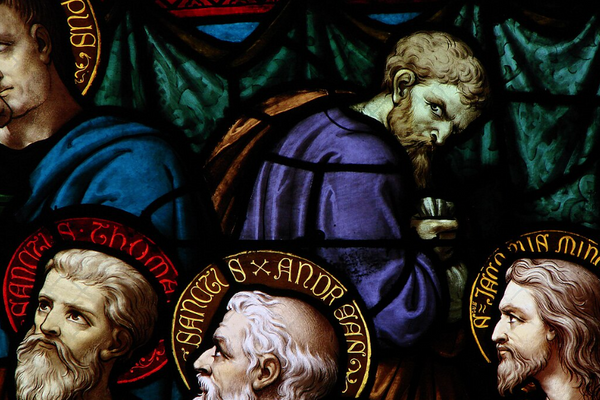Your cart is empty now.
Apostasy (5): What?
The word “if” might leave the impression that apostasy is hypothetical. But the writer to the Hebrews is not writing about a hypothetical, theoretical, possible apostasy. He is warning his readers about real, actual apostasy. There really is a hell and there are really people who once professed Christianity who perish forever under God’s wrath. The warning is serious. We could translate the passage this way: “impossible the ones once enlightened having tasted, having become partakers, having tasted and they falling away to renew them again to repentance, they crucifying…”Apostasy (4): From What?
In the last three blog posts, we examined Hebrews 10:26-29, one of the apostasy passages of the epistle to the Hebrews. Perhaps even better known is Hebrews 6:4-6, the subject of this series of blog posts. It, too, describes apostasy. If Hebrews 10:26-29 describes fearful apostasy, Hebrews 6:4-6 emphasizes that such fearful apostasy is irreversible. The apostate, warns the writer to the Hebrews, cannot be recovered from his sin. That, too, makes apostasy a uniquely fearful sin.Apostasy (3): What the Apostate Deserves
There is no easy or nice way to say this: the apostate is doomed. The apostate has despised the Son of God; the apostate has despised the work of Christ on the cross; the apostate has insulted the Holy Spirit of grace; and the apostate has sinned willfully after having received the knowledge of the truth...[But] We cannot—we must not—end without hope. There is no hope for the apostate, but there is hope for us.Apostasy (2): What the Apostate Does
In verse 26 we read, “If we sin willfully.” That is a general statement. In verse 29 the Holy Spirit describes the serious sins of the apostate. He does this to underline the guilt of the apostate, to warn the reader against the sin of apostasy, and to set forth the utter hopelessness of the apostate’s case. We have in verse 29 proof that apostasy is no ordinary sin. It is not dishonesty; it is not theft; it is not adultery; and it is not murder. It is something much worse.
















